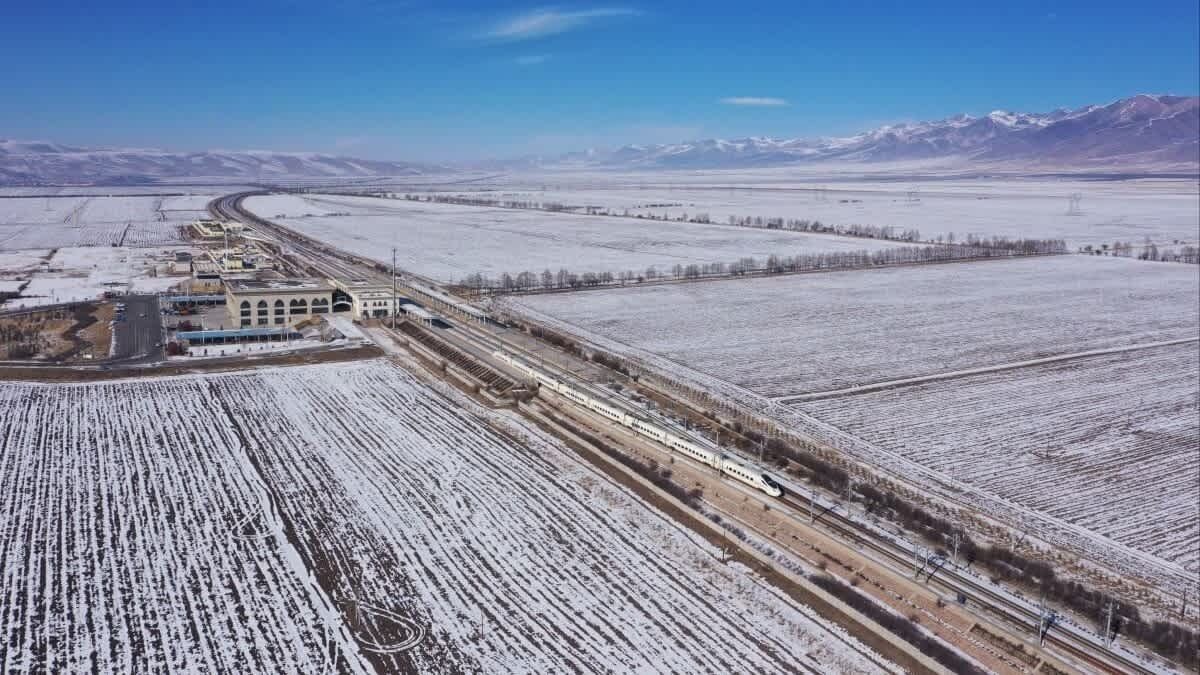World
China Launches Ambitious Xinjiang-Tibet Railway Project

China has announced plans to construct a significant railway link between Xinjiang province and Tibet, with portions of the route running in proximity to the Line of Actual Control (LAC) with India. The project aims to enhance transportation and infrastructure in a region that historically has seen limited development. According to the **South China Morning Post**, work on the railway is expected to commence this year under the auspices of a newly established state-owned company.
The **Xinjiang-Tibet Railway Company** has been officially registered with a capital investment of **95 billion yuan** (approximately **USD 13.2 billion**). This company, wholly owned by the **China State Railway Group**, will oversee both the construction and operation of the railway line connecting **Hotan** in Xinjiang and **Lhasa** in Tibet. The long-term vision is to create a **5,000-kilometer** rail network centered around Lhasa by **2035**, according to **Huayuan Securities**, a financial services firm based in Hubei.
Strategic Importance of the Railway
The railway’s route is significant not only for transportation but also for its strategic implications. As reported, segments of the railway will run near the **China-India Line of Actual Control**. This proximity is expected to provide defensive advantages in an area characterized by limited infrastructure compared to the rest of China. The LAC serves as the de facto border between China and India, adding a layer of complexity to the project amid ongoing territorial tensions.
China’s ambitions in the region are not new. The **Xinjiang-Tibet highway**, known as the **G219 highway**, has already been constructed through the disputed **Aksai Chin** area. This region has been a contentious point between India and China since the **1962 war**, with India claiming Aksai Chin as an integral part of its territory based on historical assertions and treaties.
The development of the Xinjiang-Tibet railway is expected to facilitate the movement of goods and people, potentially boosting economic activities in the region. However, it also raises concerns regarding the geopolitical dynamics between China and India, particularly in light of the sensitive nature of the locations involved.
As construction gets underway, the international community will likely monitor the situation closely, given the railway’s potential impact on regional stability and infrastructure development.
-

 World5 months ago
World5 months agoSBI Announces QIP Floor Price at ₹811.05 Per Share
-

 Lifestyle5 months ago
Lifestyle5 months agoCept Unveils ₹3.1 Crore Urban Mobility Plan for Sustainable Growth
-

 Science4 months ago
Science4 months agoNew Blood Group Discovered in South Indian Woman at Rotary Centre
-

 World5 months ago
World5 months agoTorrential Rains Cause Flash Flooding in New York and New Jersey
-

 Top Stories5 months ago
Top Stories5 months agoKonkani Cultural Organisation to Host Pearl Jubilee in Abu Dhabi
-

 Sports4 months ago
Sports4 months agoBroad Advocates for Bowling Change Ahead of Final Test Against India
-

 Science5 months ago
Science5 months agoNothing Headphone 1 Review: A Bold Contender in Audio Design
-

 Top Stories5 months ago
Top Stories5 months agoAir India Crash Investigation Highlights Boeing Fuel Switch Concerns
-

 Business5 months ago
Business5 months agoIndian Stock Market Rebounds: Sensex and Nifty Rise After Four-Day Decline
-

 Sports4 months ago
Sports4 months agoCristian Totti Retires at 19: Pressure of Fame Takes Toll
-

 Politics5 months ago
Politics5 months agoAbandoned Doberman Finds New Home After Journey to Prague
-

 Top Stories5 months ago
Top Stories5 months agoPatna Bank Manager Abhishek Varun Found Dead in Well









